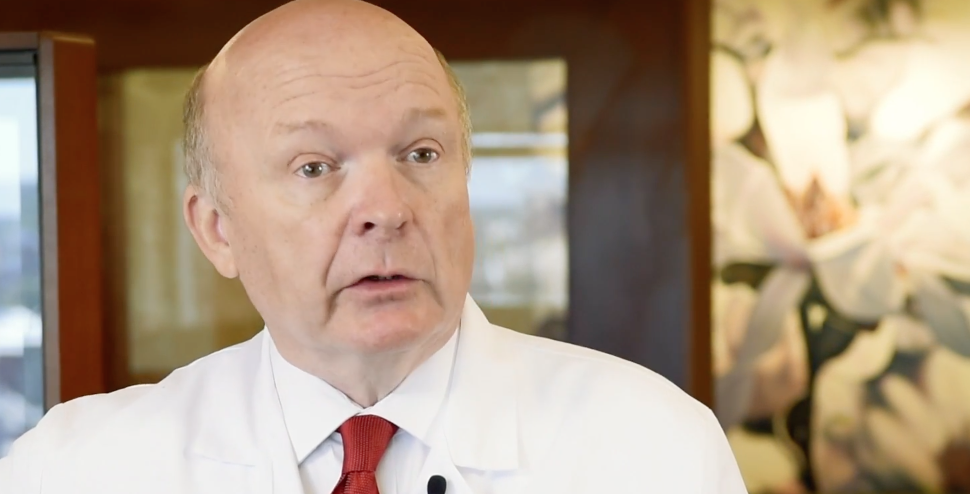Dr. Ronald McGarry wants to debunk misconceptions about radiation oncology


For this week's edition of Making the Rounds, we are joined by radiation oncologist Dr. Ronald McGarry. He has been treating patients with lung cancer and other cancers for more than 10 years at the UK Markey Cancer Center. We spoke to Dr. McGarry to learn why he decided to pursue medicine and what the future of radiation oncology looks like.
Tell us about your path to medicine.
I grew up in a medical family, but I did research primarily. I was in the cancer research group in Calgary, Alberta. I decided I wanted to do more, so I returned to medical school when I was 38 with the goal of doing cancer research. I’ve stuck with it, and that’s what I’m doing now.
I learned about lung cancer many years ago, and as I went through basic science research, I learned what a dismal disease it was and the outcomes were so bad. This was a great opportunity to blend my basic science research with clinical research and clinical trials.
How have you seen the field of radiation oncology advance over the years?
Radiation oncology has moved forward quite dramatically with new technologies, new imaging. When I came here, we introduced some new treatment techniques, one of which I’m most proud of called stereotactic body radiation therapy. This is a new technology that we developed 17 years ago when I was in Indiana that allows us to treat many patients who weren’t treatable before and treat on a curative basis. Early stage lung cancer can be a bad disease, but if caught early enough, we can treat it non-invasively and potentially cure it.
What can patients expect when they come to you?
We work in multidisciplinary groups with medical oncology and surgery in order to develop a good treatment protocol for that patient. Most patients end up receiving radiation at some point in time.
Our goal is to try to encourage them to understand more about their treatment, how radiation is used, what it means. It has relatively few side effects for many patients, but it is really poorly understood by the community. When they arrive for my part of the treatment, I like to spend as much time as possible with the patient to make sure they understand what their treatment’s about, what they can expect and what the expected outcome is.
Watch our interview with Dr. Ronald McGarry to discover why he's so motivated to treat lung cancer.







